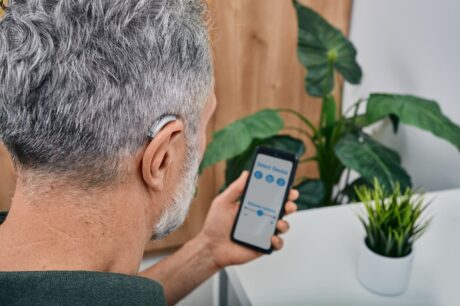As parents, ensuring our children grow up healthy and happy is our top priority. However, one area of health that can often be overlooked is hearing. Hearing loss in children is more common than many realise, and recognising the early signs can make a world of difference in a child’s development.
Milestones and Red Flags: Understanding Typical Hearing Development
Children’s hearing and communication skills develop in stages, with typical milestones marking their progress. By understanding these milestones, parents can better spot when something might be amiss:
- Infants (0-6 months): Babies typically react to loud sounds, turn towards familiar voices, and coo or make gurgling noises.
- Toddlers (6-18 months): They start babbling, understand simple words like “no” and “bye-bye”, and may try to imitate speech sounds.
- Preschoolers (18 months – 3 years): Children should start using simple words, putting two or three words together to express themselves, and following basic instructions.
However, parents should be aware of certain red flags, such as a lack of response to sound, signs of speech delay, or not turning towards voices. If any of these signs are noticed, it’s important to consult a paediatrician or audiologist.
Recognising Less Obvious Indicators of Hearing Loss
Hearing loss in children isn’t always obvious. Beyond missing major milestones, there are other subtle signs of hearing loss that might suggest an issue:
- Delayed speech and language development: If your child is not meeting language milestones for their age, it could be a sign of difficulty hearing.
- Difficulty following instructions or responding to questions: Kids with hearing loss may have trouble following directions, especially in noisy settings.
- Frequent requests for repetition or clarification: Repeatedly saying, “What?” or asking others to repeat themselves can indicate trouble hearing clearly.
- Turning up the volume on devices: If your child frequently turns up the volume on the TV, tablet, or other devices, it may be because they struggle to hear at normal levels.
- Inattentiveness or difficulty focusing in noisy environments:Hearing loss can make it hard for children to focus in places with a lot of background noise.
- Social withdrawal or difficulty making friends: Difficulty hearing can make social interactions challenging, leading some children to withdraw or struggle to form friendships.
Middle Ear Infections and Hearing Loss
Frequent ear infections are common in young children but can also lead to temporary or even permanent hearing loss. These infections can cause fluid build-up in the middle ear, which affects the ability to hear clearly. It’s important to go for checkups for ear infections and follow through with any prescribed treatments. Parents should also monitor their child’s hearing after an ear infection and report any changes to their healthcare provider.
The Importance of Early Intervention
The earlier a child receives help for hearing loss, the better their overall development. Early intervention minimises the impact of hearing loss on language, communication, and social skills. Depending on the type and extent of hearing loss, interventions may include:
- Hearing aids or cochlear implants: These devices can help improve a child’s ability to hear sounds and develop speech.
- Speech therapy and auditory training: Speech therapy helps children develop communication skills, while auditory training focuses on enhancing listening abilities.
With timely intervention, children with hearing loss can thrive in both academic and social environments, closing the gap with their peers.
When to Seek Professional Help

If you suspect your child might be experiencing hearing loss or if they aren’t meeting hearing and communication milestones, it’s crucial to seek professional help. Qualified audiologists can evaluate your child’s hearing and guide you on the best steps to take.
Regular hearing screenings are also important, particularly for kids at higher risk for hearing issues, such as those with frequent ear infections or a family history of hearing loss.
If you have any concerns about your child’s hearing, consider scheduling a hearing screening or ear checkup at the Listening Lab. Our team of caring professionals is here to provide support and guidance for your child’s hearing health.


















